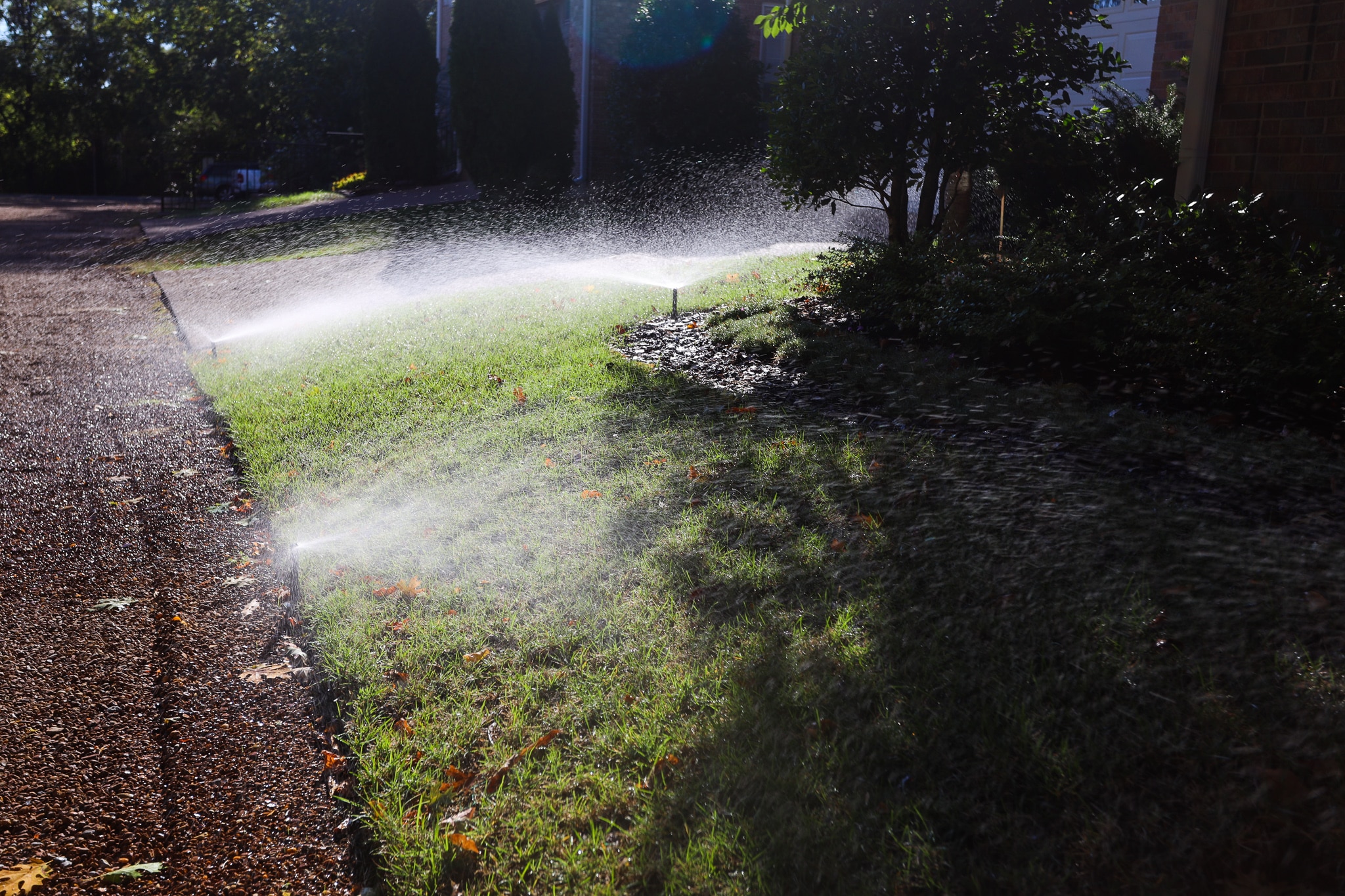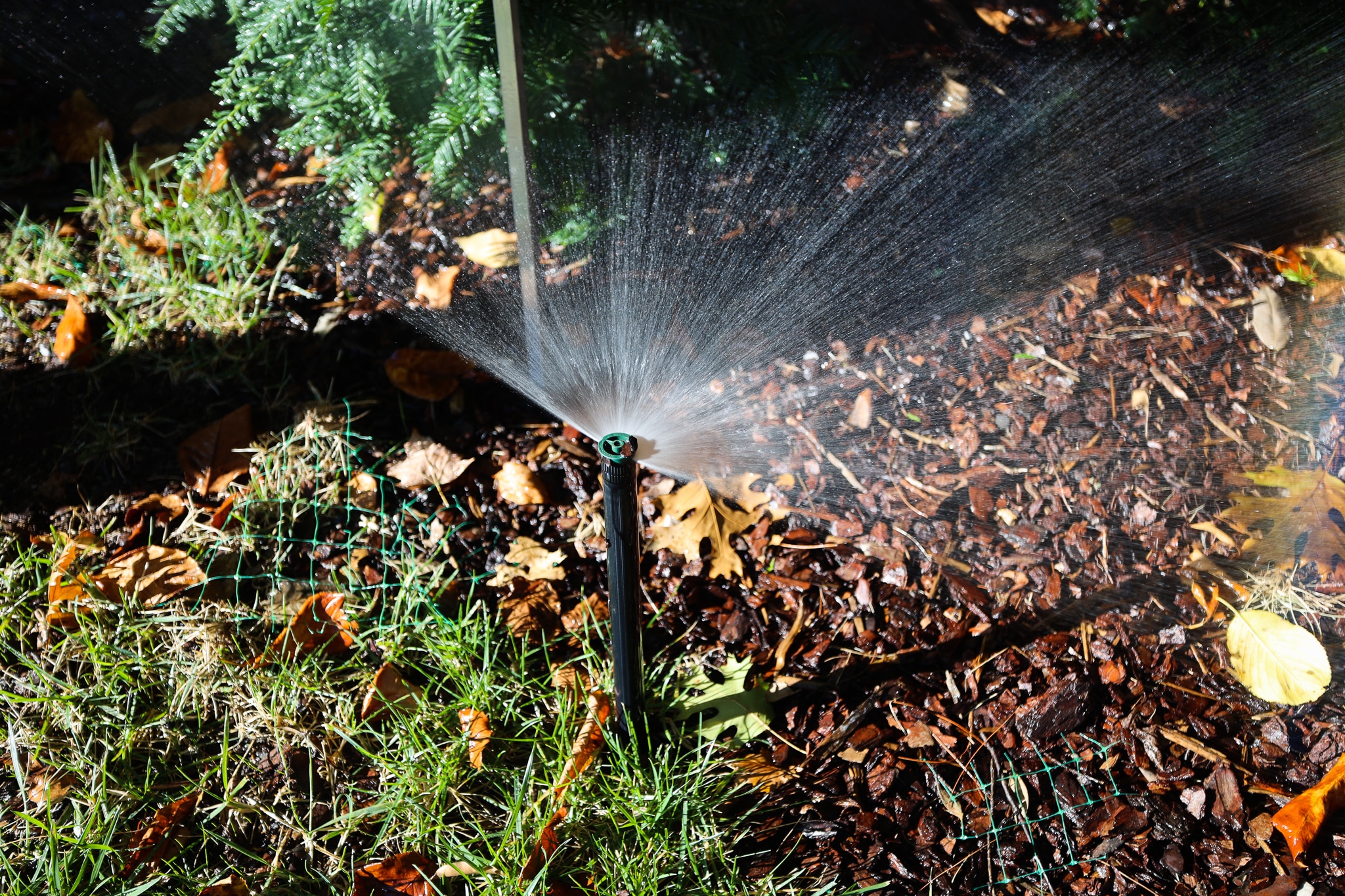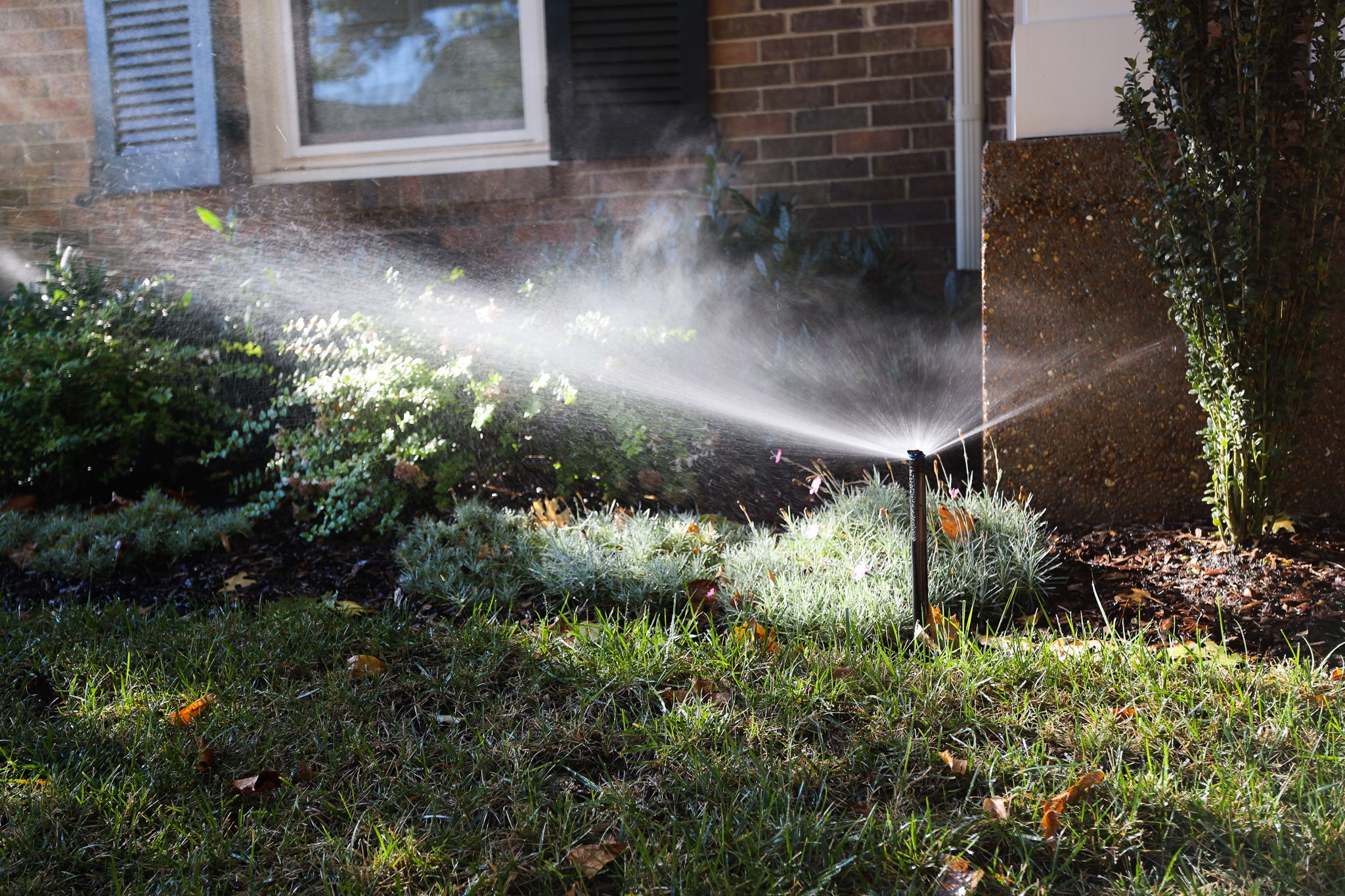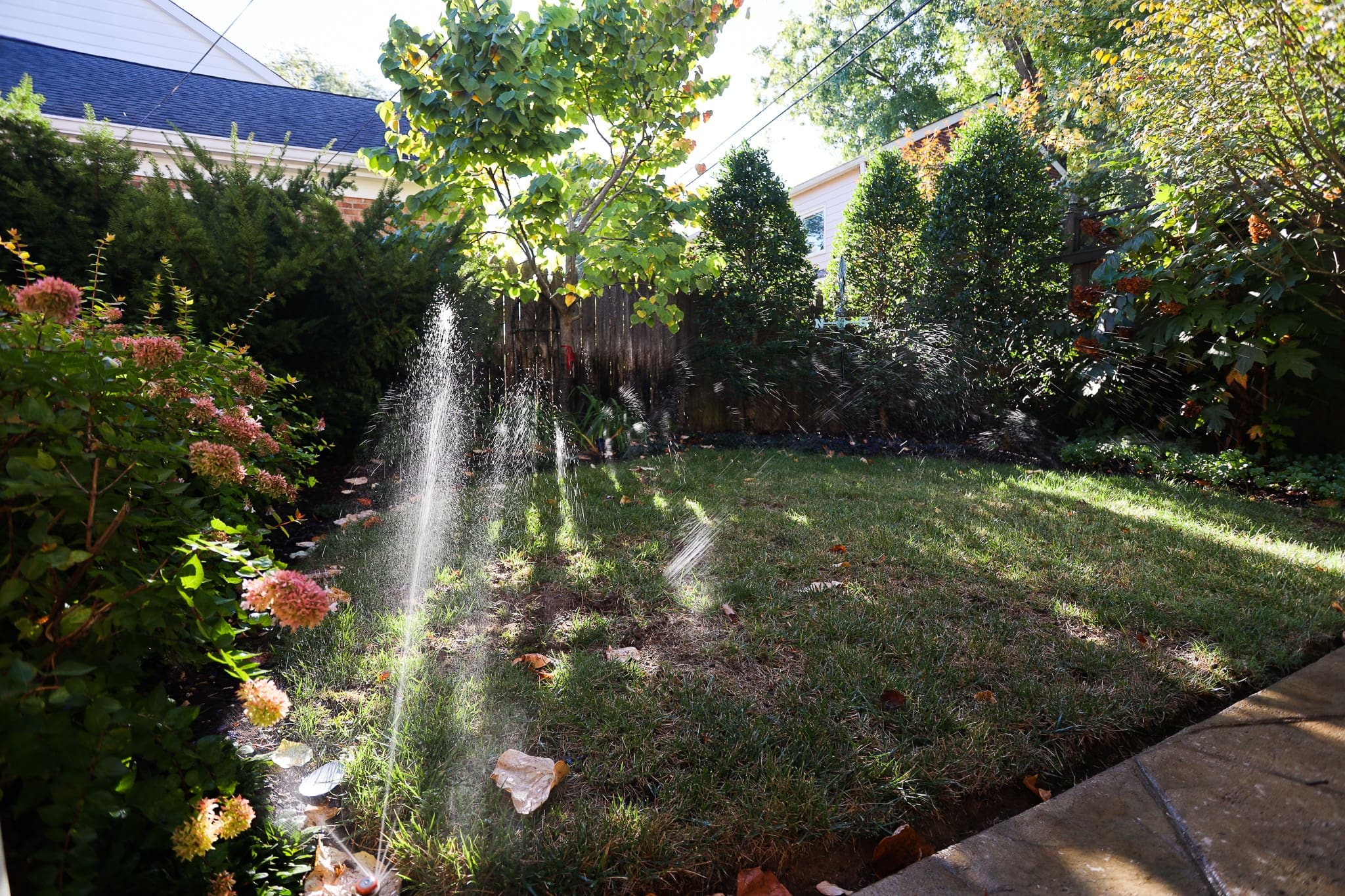It’s Time to Winterize In-Ground Irrigation Systems
Your in-ground irrigation system has kept your landscape green, growing and thriving throughout the high temperatures and dry days of summer. Fall is here now, and it’s time to give the system some attention after it’s worked so hard. It’s a good idea to make sure the system enters its “down time” in the best shape possible.
“System issues do arise from time to time, so it’s important to have a regular maintenance schedule,” says Tim Nebel, landscape production manager at Gardens of Babylon. High on that priorities list is to winterize your in-ground system – “This is essential in Tennessee, or in places with cold winters.”

What is ‘Winterizing?’
Freezing weather will likely turn any water in your in-ground irrigation pipes to ice, so as winter approaches, technicians turn off the water flow to the system, then drain water out of the pipes and the backflow using an air compressor. “If you do not winterize, more than likely the pipes and backflow will crack due to freezing and thawing, and will then need to be repaired for the system to run properly,” Nebel says.
In addition to winterizing, Gardens of Babylon’s maintenance schedule for in-ground systems can also include seasonal adjustment inspections as the landscape’s water needs rise or slow down.

Spring Startup
When the weather begins to warm up again in spring, the system can be turned back on and timer settings are restored. Later, as summer heat kicks in, Nebel says it’s important to re-visit the settings of the run-time controller to adjust the watering times as necessary for the season.
“Coverage needs can change over time. Adjusting the settings can save water and lower costs,” Nebel says. “An in-ground irrigation system may be the biggest investment you make in your landscape,” he says. “You want to make sure you’re having someone look at it year round.”
Gardens of Babylon install and maintains in-ground irrigation systems for all types of landscapes. Click here to book a consultation for installation or to learn about maintenance packages for your irrigation system.






